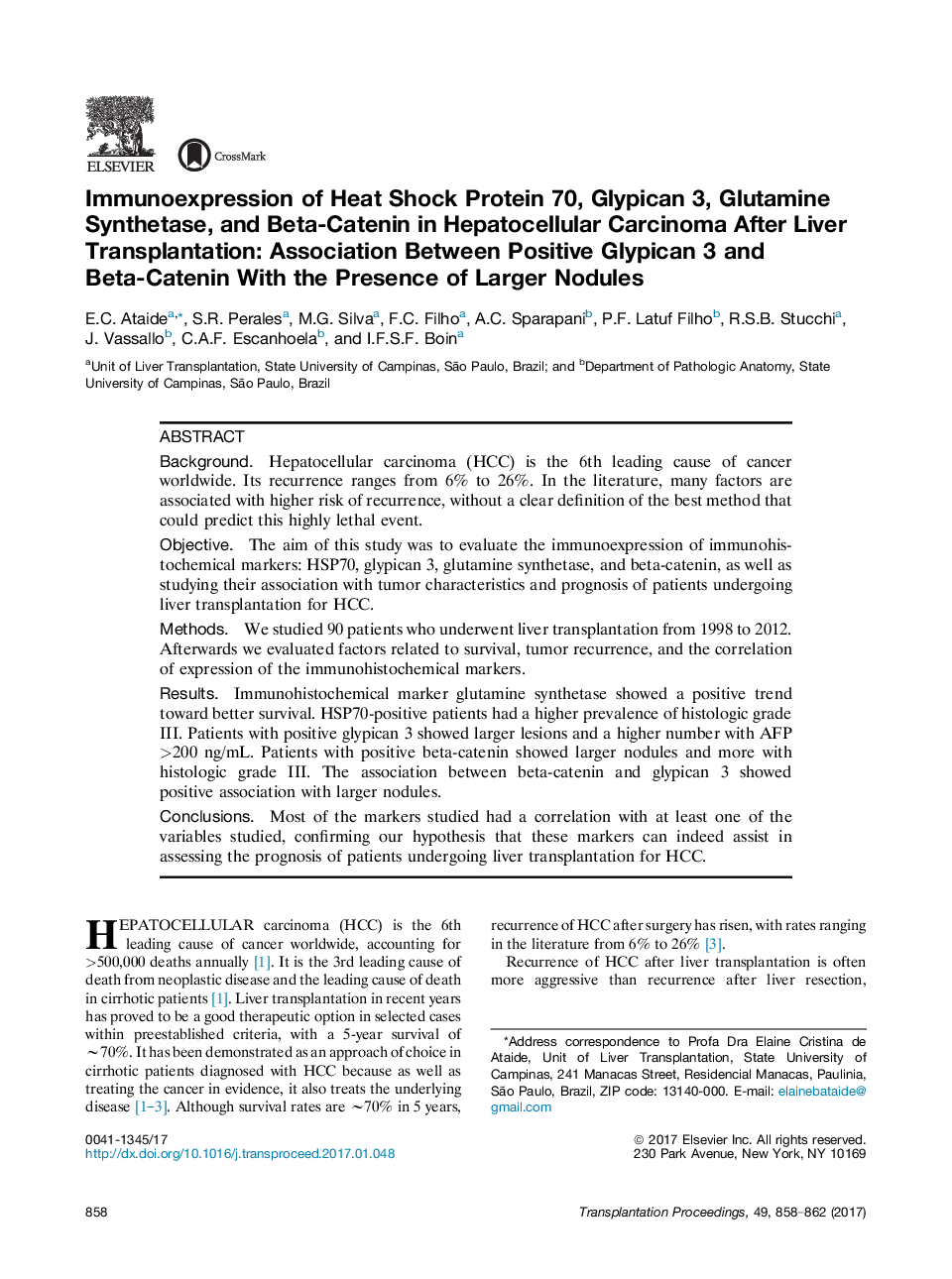| Article ID | Journal | Published Year | Pages | File Type |
|---|---|---|---|---|
| 5728950 | Transplantation Proceedings | 2017 | 5 Pages |
BackgroundHepatocellular carcinoma (HCC) is the 6th leading cause of cancer worldwide. Its recurrence ranges from 6% to 26%. In the literature, many factors are associated with higher risk of recurrence, without a clear definition of the best method that could predict this highly lethal event.ObjectiveThe aim of this study was to evaluate the immunoexpression of immunohistochemical markers: HSP70, glypican 3, glutamine synthetase, and beta-catenin, as well as studying their association with tumor characteristics and prognosis of patients undergoing liver transplantation for HCC.MethodsWe studied 90 patients who underwent liver transplantation from 1998 to 2012. Afterwards we evaluated factors related to survival, tumor recurrence, and the correlation of expression of the immunohistochemical markers.ResultsImmunohistochemical marker glutamine synthetase showed a positive trend toward better survival. HSP70-positive patients had a higher prevalence of histologic grade III. Patients with positive glypican 3 showed larger lesions and a higher number with AFP >200 ng/mL. Patients with positive beta-catenin showed larger nodules and more with histologic grade III. The association between beta-catenin and glypican 3 showed positive association with larger nodules.ConclusionsMost of the markers studied had a correlation with at least one of the variables studied, confirming our hypothesis that these markers can indeed assist in assessing the prognosis of patients undergoing liver transplantation for HCC.
